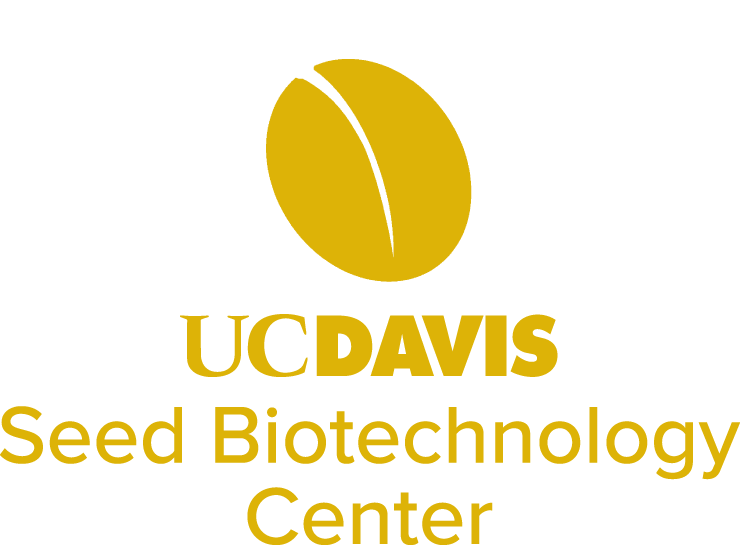The initial concept—and subsequent path—for the UC Davis Seed Biotechnology Center (SBC) relied on a close partnership with the seed industry. Research, education and public service for agricultural and consumer benefit were at the heart of the SBC’s mission.
The first organizing committee met in the summer of 1996. Along with UC Davis scientists, this included representatives from the California Seed Association, the California Crop Improvement Association and various seed companies.
Formally established in 1999 with Professor Kent Bradford serving as director, the SBC grew to include Susan DiTomaso, Allen Van Deynze and Rale Gjuric. Originally the center was within the Dean’s office at the College of Agricultural and Environmental Sciences and associated with the Department of Vegetable Crops. Plant Sciences later recognized it as one of its now eight Resource and Information Centers, which provided the center with departmental support. In 2004, the SBC moved into the Plant Reproductive Biology facility, which now included a $1.3 million renovation funded by the seed industry to provide a needed home for the center.

Germinating the seeds of the future
Bradford and his team developed continuing education courses that covered all aspects of crop breeding and seed production, along with business classes for producing and marketing seeds. Since SBC’s founding, numerous genetic and technological advances related to plant breeding and seed quality have resulted from the center’s research.
The SBC’s Plant Breeding Academy gained international recognition for its role in expanding education for plant breeders, offering programs in the U.S., Europe and Asia. More recently, the SBC has been a partner in the African Orphan Crops Consortium, which is sequencing the genomes of 100 indigenous species and educating plant breeders in applying that information to crop improvement.
In 2010, the SBC and Francois Korn, CEO of SeedQuest, were pushing to find a way to bring UC Davis science to market faster. The result of their effort was Seed Central, a networking collaboration that brought the campus and region one step closer to reaching its goal of becoming the “Silicon Valley of seed.”
Applying the industry-campus model
The following year the SBC began an active role in developing what is today the UC Davis Plant Breeding Center, with Charles Brummer now heading the program.
Prior to the center, the supply of trained plant breeders in California was drastically behind demand. The PBC, leveraging UC Davis’ strengths in molecular genetics, biotechnology and genomics along with plant breeding, set out to develop the next generation of breeders and to establish a hub for breeding activities across campus. This while expanding its educational programs to incorporate partners from the seed and nursery industries.
Technology, education and the new workforce
Through the UC Davis research and education powerhouse, the PBC and SBC are delivering a broad spectrum of programs that ensures industry, government and public sectors throughout the world will have the breeding talent needed to achieve food security for the future.
“The center is grateful for this fantastic support from UC Davis and partnership with the seed industry, which has allowed the SBC to build such a strong program to create win-win opportunities for all involved,” says Kent Bradford.
